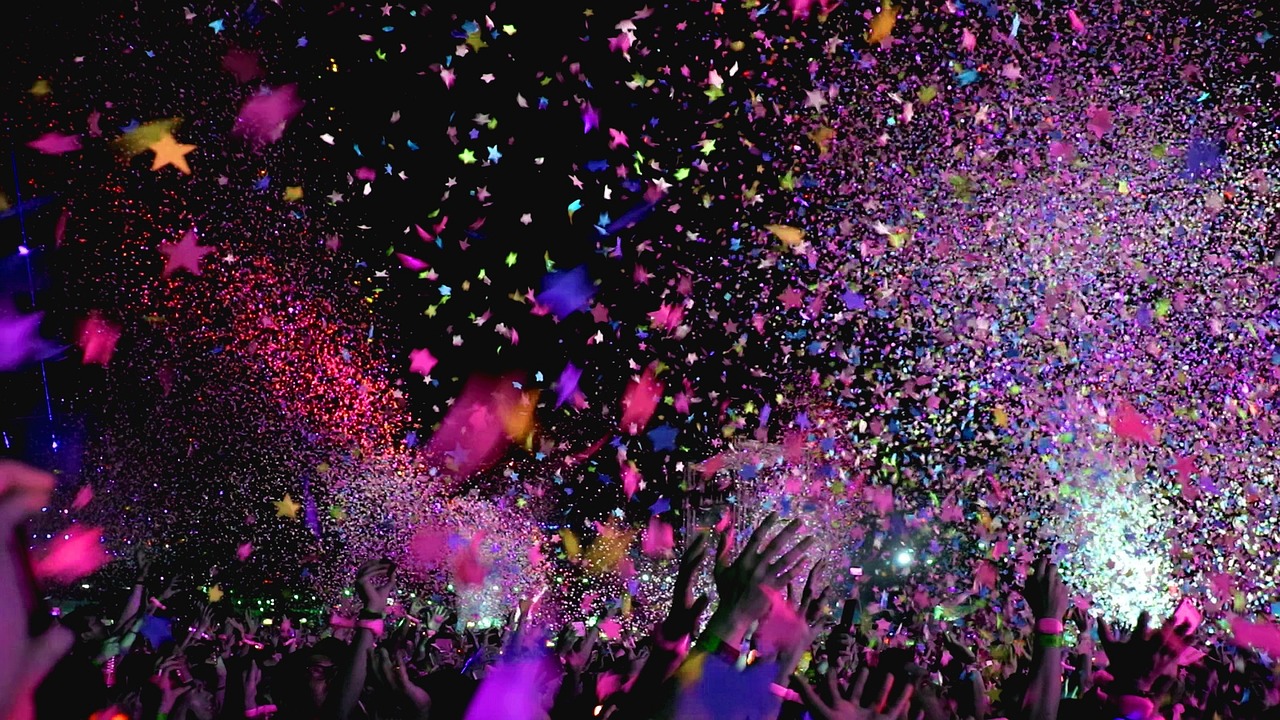You can register a trademark for an event. That is, you can if it bears a unique trade name, logo, or slogan and if it is not simply a one-time occurrence.
This Article will discuss registering a trademark for an event. Namely, where and when is this appropriate? What are the advantages?
It will also discuss US trademark law unpinning these questions. Finally, we will address the question of how you can best maximize the odds of a successful trademark registration for your event.
First, for what types of events can you register a trademark?
What Sort of Events Qualify for Trademark Registration?
We will explain the underlying legal reasons for this below. First, however, let’s start off with some plain English rules of thumb regarding registering a trademark for an event.
The name, slogan, or logo of or for your event will be registrable as a US trademark if:
- The event name or logo must be unique.
- It must travel across state lines or attract attendees from across state lines.
- The event must be one that recurs periodically or is ongoing. (It can’t be a one-time event.)
- The subject-matter of the event cannot be one that is illegal under Federal law. (Looking at you, cannabis industry!)
Just take our word for these maxims. Read on if you want to learn why there are such rules.
Before we get to that, however, what is trademark registration? And what are some of the advantages of registering a trademark for your event?
What Is Trademark Registration?
Federal trademark registration is a grant of the exclusive right to use a “mark” used in trade (commerce) anywhere in the United States.
It can be a business name, product name, logo, slogan or tag-line, or even a color, sound, or smell.
So long as the “mark” serves the purpose of identifying your business as the source of a product or service sold across state lines (interstate commerce), it can be registered with the US Patent and Trademark Office (USPTO).
The USPTO’s inclusion of your ownership of a mark in its “Register of Trademarks” provides you that right of exclusive use, among other advantages described below.
It is important to remember, however, that, unlike copyright or patent registration, trademark registration ultimately exists as a consumer protection guarantee.
This means that your application to register a trademark for an event or any other product or service will be reviewed in terms of whether or not it will be likely to confuse consumers viewing the mark as to who is selling what.
When you walk into a Livonia-area 7-11 store and buy a can of Coke out of the refrigerator, your guarantee that you are buying a product of the Coca Cola Bottling Company of Atlanta, Georgia is that “®” registered trademark symbol next to the familiar cursive script on the can.
This is the guarantee offered to the public at large through the registration of a trademark for an event.
Advantages of Federal Trademark Registration for Events
That said, trademark registration will provide enormous benefit to your event-planning or event-related enterprise.
First and most importantly, US trademark registration guarantees that your event name, slogan, or logo can be used by you alone, across the United States.
At least, this is true for events-related products or services. If you conduct an annual regional trade shows related to the craft brewing industry, for example, a similar name might be registered by an unrelated company selling cookies or dog-collars or board games or … whatever.
The USPTO will not view this as likely to confuse consumers as the people buying board games and dog collars are not likely to be the same people buying hops farming equipment or brewing facility equipment.
Other key advantages of trademark registration for events include:
- Standing to sue infringers in Federal Court;
- The right to send a cease-and-desist letter to infringers;
- The ability to request that US Customs block the import of infringing products;
- A “chilling effect” on the filing of new trademark registration applications for infringing names or logos;
- Guarantees future business value (without an enforceable brand, you have none);
- Required for franchising;
- Builds brand awareness and loyalty through consumer confidence.
About the “Chilling Effect” of a Registered Trademark
Regarding that “chilling effect,” this occurs in a couple of different ways. Its value cannot be understated, largely because it costs you absolutely nothing once you’ve successfully registered a trademark mark.
First, the registered trademark for your event will cause other potential applicants to stop dead in their tracks and re-brand before filing any application with the USPTO.
This happens because those companies’ trademark attorneys will do what we do when first retained: run a professional trademark clearance search. When your event trademark registration shows up in their clearance search, they’ll re-think the utility of filing a USPTO application.
Second, your registered trademark for your event will occupy the USPTO registry ahead of any new applications. When potential new applications that may infringe upon yours are filed, the USPTO Examiners assigned to those new files will search the existing registry for potential conflicts.
When yours shows up in the Examiners’ search, the new application will be refused.
The Rules Regarding Trademark Registration for Events
Those basic concepts explained, let’s return to our “rules of thumb,” above, regarding trademark registration for an event. Those rules of thumb are true due to the essential legal eligibility requirements for trademark registration for events, as well as other products or services.
These eligibility requirements are as follows:
Use In Interstate Commerce
Under the Commerce Clause of the US Constitution, the Federal government only has jurisdiction over trade or commercial activity when it extends over a state line.
Your event’s trademark use must cross a state line in order to fall under the umbrella of the USPTO’s scope of legal protection.
If you only schedule events or conferences or conventions or seminars within, say, the State of Michigan, you are engaged only in intra-state commerce. (Imagine a retail expo held in downtown Detroit for Detroit-area retail businesses only.
You must be engaged in interstate commerce to register your event name or slogan or logo with the USPTO as a Federal trademark.
This does not, however, mean that you must be a for-profit enterprise. Non-profit or not-for-profit businesses or solo efforts are “in use in commerce” when the use of their names in association with specific product or services are displayed to consumers outside of their own state.
The reason that an event must happen more than once for its name or brand to be registrable is because a trademark must be continually used in commerce from year to year to stay registered.
An event that happens once and never happens again is not “in commerce.” If you don’t use a trademark in commerce, you lose it—or can’t register it in the first place.
No Likelihood of Confusion
You cannot, as implied above, register a trademark for an event if your name, logo, or slogan is likely to confuse consumers as to who is producing the event.
Thus, your name or logo cannot be exactly the same as one registered prior to yours with the USPTO.
Further, it cannot be similar enough to likely confuse anybody … The legal standard here is not, after all, “certain to confuse” but “likely to confuse.”
However, this does not mean that your event name cannot be similar to another company’s to register as a trademark. The products or services must be the same or “related.” For example, if the name of your event is the ABC CRAFT BREWERY TRADE SHOW and there already are registered trademarks for ABC BEER or the ABC BREWERY, these will be considered “related.”
However, a prior registration for, say, the ABC GARBAGE HAULING BOYS will not, likely, present a conflict.
However, never assume. You’ll need to consult an experienced Michigan trademark attorney to discuss your specific event name.
Strong Trademark, Not Merely Descriptive
The other aspect of the “must be unique” requirement is that your event name or logo cannot be merely descriptive of the product or service you are offering.
A mark cannot specifically identify you as the source of a product or service if it is merely generic or descriptive.
For example, if you name your event DETROIT FISHING SEMINAR, and it is an education seminar concerning fishing held in the City of Detroit, Michigan, this is a poor trademark. It simply names the product/service and the geographic area in which it is located.
A geographic place-name, further, cannot itself be registered as a trademark.
A better event name would be something like THE GOLDEN CODFISH SUMMIT. Or whatever.
You get the idea.
Examples of Trademark Registrations for Recurring Events
What are some good examples of success trademark registrations for an event? Here is a short list of a few such registrations:
North American International Detroit Auto Show (Application No. 9732448)
This pending “design mark” (logo) trademark registration application is for one of the larger events to recur annually in Metro Detroit: the North American International Auto Show.
This new registration application is for a new logo for the event. Filed in March, 2022, as of this writing, it has not yet been examined.
The USPTO Examiner may initially refuse it as merely descriptive. However, this event is longstanding and nationally known. The applicant will be able to argue any refusal on a few different bases, regardless.
Comic-Con (Application No. 3219568)
This well-established event registration looms large in our hearts at Noble Path Trademark Law: the San Diego Comic Convention. This convention has become larger every year, and it is now one of the primary entertainment industry go-to events in any given year.
Originally registered in 2007, this registration is a “word mark” registration for the name COMIC-CON itself. It has survived third party cancellation proceedings and other travails and, while seemingly generic, it is a sufficiently old event and famous mark to maintain its registration.
TSR Con (Application No. 90884153)
This pending registration was filed for the purpose of use in association with “war game trade shows,” among other things.
In actuality, this trademark registration is representative of a certain amount of controversy in the tabletop role-playing game industry. It is an application filed by a successor in interest to TSR Games, the manufacturer of Dungeons & Dragons role-playing games products for decades.
A complicated chain of corporate buy-outs and other ownership transitions has now, apparently, resulted in a new entity calling itself TSR filing for new trademark applications.
The TSR Con itself a gaming convention. Conventions such as this one, Origins, GenCon, and others around the country are focal points for gaming hobbyists.
Miss Northern Maine Beauty Pageant (Application No. 97271561)
How about a beauty pageant? Beauty pageants are a great example of an event that is sufficient recurring to be continuously “in commerce” from year to year.
A one-time event would not be “in commerce” after it takes place.
But the Miss Northern Maine Beauty Pageant? We presume that, going forward, there will be a Miss Northern Maine 2023, 2024, 2025, and so on …
US Open Judo Championships (Application No. 97225605)
An annual sports championship event will be “in commerce” as well. The US Open Judo Championships have recently filed this application for trademark registration for its event.
Yes, sensei!
Academy Awards (Registration No. 2245965)
What bigger event do we enjoy each than the Academy Awards? (The Superbowl, maybe.)
This registration has been in place since the 1990s—but with a “first use in commerce” date of 1953. The registration covers this service:
Entertainment services, namely, an annual award program for presentation of awards in recognition of distinguished achievement in the motion picture industry; educational services, namely, providing incentives to persons to demonstrate excellence in the field of motion pictures through the issuance of awards …
The specific “service” or “product” described in your application to register a trademark for an event will also need to be specified to identify your event accurately and to distinguish it from other registrations.
How a Michigan Attorney Can Help to Register a Trademark for Your Event
You should be able to register a trademark for an event—if your name, slogan, or logo are being used in commerce and are sufficiently unique.
However, each application carries its own specific issues that should be discussed with an experienced Michigan trademark attorney.
Noble Path Trademark Law is a boutique US law practice located in Metro Detroit and assisting entrepreneurs, solopreneurs, artists, musicians, start-ups, and larger enterprises with robust intellectual property portfolios in all industries and in all states with trademark registration, trademark renewal, and Office Action refusal response matters.
We offer virtual consultations, premium customer service, and the expertise you need to maximize your odds of trademark registration, Letter of Protest, or Opposition success.






